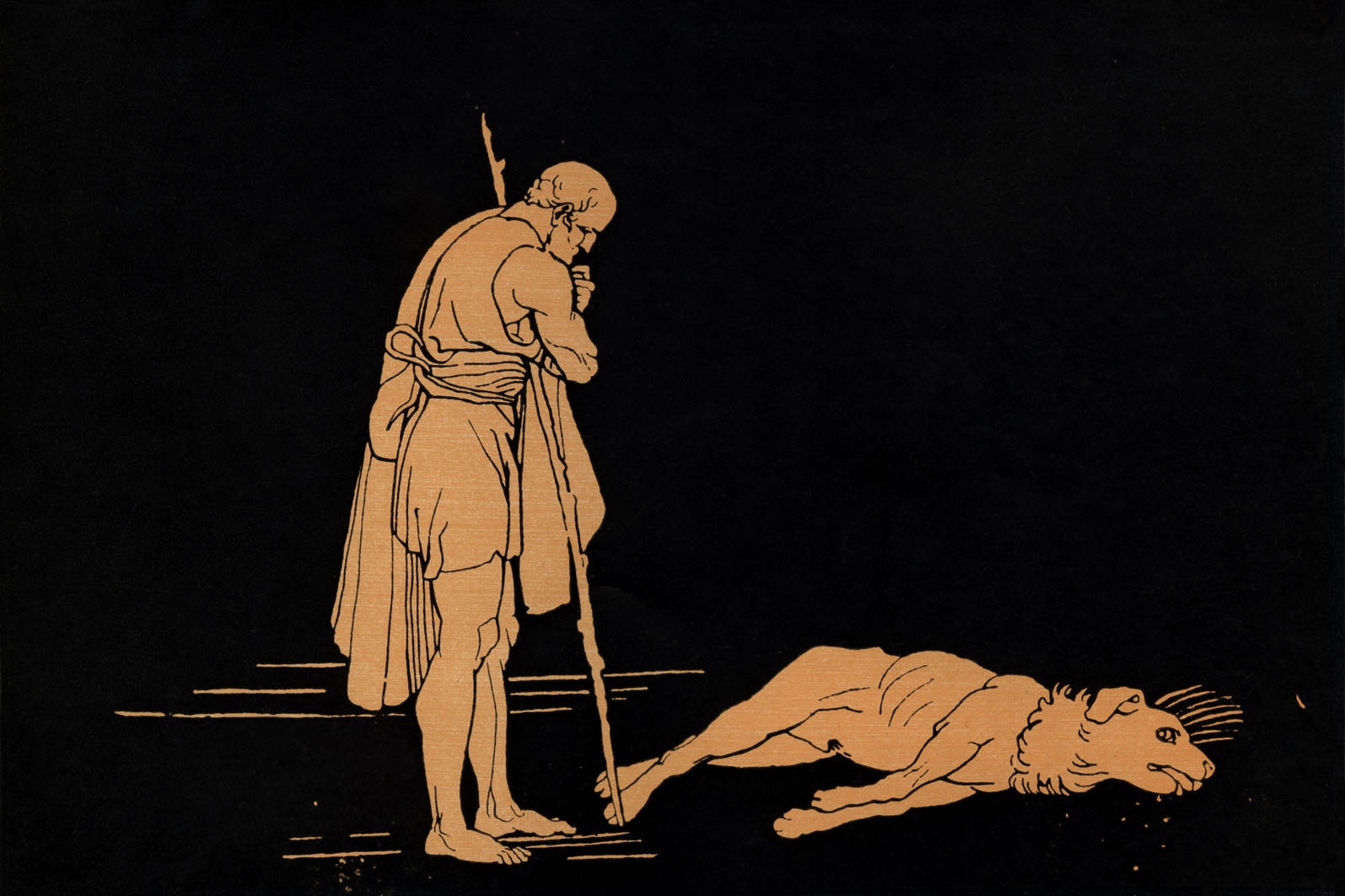Text Messages | Home is where the hound is
The homing instinct is ancient, atavistic and profound. But as Homer makes clear, people are not always the drawcard.
Author:
13 June 2019

First there were the days celebrating parents. Then came supplementary, subsidiary days in honour of bosses and secretaries, and still others devoted to causes and ailments. Almost certainly in the future there will be days for sisters, brothers, stepfathers, stepmothers, great-aunts, great-uncles, nephews, nieces and grandparents.
The great maw of capitalist expedience and exploitation, allied to an abuse of psychology to create wanton desire, dooms the planet to wanting more, more, more. Although intrinsically it is laudable to remember, thank and celebrate those near and dear to us, it degrades such acknowledgement to turn it into orgiastic consumerism.
Not even holy days are immune. Easter, Passover, Diwali, Eid, Ramadan and others are victims of glossy, full-colour merchandising promotions wishing the best to adherents of various faiths. This is no heartfelt outreach; it is, rather, a priming of potential customers.
In all these displays of commodities, true meaning is lost. Every day should be an occasion properly to remember and rejoice, recall and respect. This year’s coinciding of Youth Day and Father’s Day reminds us what a generation of young people sacrificed 45 years ago on 16 June in 1976 and what their fathers and forefathers gave up before them.
Many of the older generations forsook home to work far away in alien, intimidating environments, in many cases underground in the gold mines of the Witwatersrand. They journeyed to a different, not a better life, with returning home consigned to a series of fleeting visits rather than to any re-rooting and resettling proper.
A father’s journey
That impulse to go home or back home is among the deepest that Earth’s life forms share. Homing instinct is for pigeons and for people: ancient, atavistic and profound. As 16 June this year reminds us of fathers and youths, it brings to mind one of the greatest journeys home made by a father and of the anxiety and expectation of his waiting son, wife and father.
The story of that quest for home is told in The Odyssey by Homer (let’s avoid going into the irresolvable and largely pointy-headed question of whether Homer was one or many poets). It is 10 years since the fall of Troy and, alone of all the leaders of the Greek forces there, Odysseus has not found his way home. (One must note that Homer never calls them “Greeks” but Achaians, Argives or Danaans. “Greeks” is a Roman coinage and “Greeks” call themselves Hellenes and “Greece” Hellas.)
The yearning for home in Odysseus is unquenchable even if the place seems unattainable, the journey strewn with terrible obstacles, with the death of his companions and with the angry interference of Poseidon, lord of the sea and his implacable enemy.
Waiting at home and wondering what might have happened to Odysseus are his son Telemachos (Latinised as Telemachus), his wife Penelope and his father, Laertes. Here is a glimpse of Telemachos’ pain (Book II, lines 260-264) from the now-classic prose translation by EV Rieu.
“In the meantime Telemachus sought the solitude of the seashore, where he washed his hands in the grey surf and lifted them in prayer to Athene. ‘Hear, I beg you, that in your godhead came yesterday to my house. It was your command that I should sail across the misty seas to find out whether my long-lost father is ever coming back…’”
‘At home in sunny Ithaka’
Odysseus, promised a safe passage home by the Phaiakians (Phaeacians), describes himself and his homeland to them (Book IX, lines 19-28), from the greatest of translators of Homer, Richmond Lattimore.
I am Odysseus son of Laertes, known before all men
for the crafty study of designs, and my fame goes up to the heavens.
I am at home in sunny Ithaka. There is a mountain
there that stands tall, leaf-trembling Neritos, and there are islands
settled around it, lying one very close to another.
There is Doulichion and Same, wooded Zakynthos,
but my island lies low and away, last of all on the water
towards the dark, with the rest below facing east and sunshine,
a rugged place but a good nurse of men; for my part
I cannot think of any place sweeter to look at.
When Odysseus reaches Ithaka, he must disguise himself to escape detection by the noblemen who have been besieging his wife, Penelope, with offers of marriage. How to oust them from his home and re-establish his command are problems, but solvable.
Insoluble is the most poignant of all the reunions that Odysseus experiences, one that takes place only by instinct and sense, and not by touch and word, embrace and cry of recognition. It is arguably the most memorable demonstration of canine faithfulness – and faith – in all literature. Argos, Odysseus’ once splendid hunting dog, is now aged and neglected, tick-ridden and left to lie on a pile of dung. (Book XVII, lines 301-305; Rieu translation)
“But directly he became aware of Odysseus’ presence, he wagged his tail and dropped his ears, though he lacked the strength now to come nearer to his master. Odysseus turned his eyes away and … brushed away a tear…”
Odysseus cannot acknowledge Argos for fear of being discovered and so, without greeting or goodbye (Book XVII, lines 326-327; Lattimore translation):
But the doom of dark death now closed over the dog, Argos,
When, after nineteen years had gone by, he had seen Odysseus.
It is a homecoming day for Odysseus, and so Argos has gone home too, forever.
